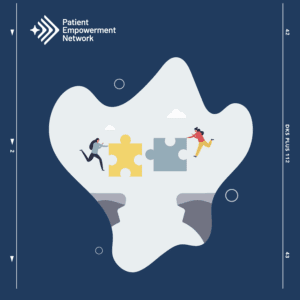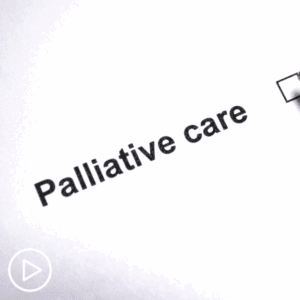Prostate cancer care is more than just treating cancer. This animated video explains the role of palliative care in symptom and side effect management, emotional support, and empowers patients to focus on living well. Palliative care helps patients and families navigate treatment with confidence and helps men live better, every step of the way.
Related Resources
Transcript
For those living with prostate cancer, preserving a high quality of life as they go through their care—from diagnosis to survivorship—is essential to their well-being.
That’s where something called “Palliative Care” comes in—a type of supportive care that focuses on improving quality of life and vitality at any stage of cancer. This may include:
- Managing disease symptoms and treatment side effects such as pain, fatigue, bladder changes, and sexual issues.
- Emotional support is also considered palliative care, like helping patients and care partners cope with anxiety, fear of progression, or other challenges that may come with a cancer diagnosis.
- Palliative care can help organize care and assist in aligning the patient’s treatment plan with their personal goals.
Focusing on care for the whole person—not just the cancer— has a host of benefits. Patients often find that palliative care helps them feel better overall, allowing them to stay engaged in daily life and to maintain relationships. This type of support can also reduce stress and worry, aid in decision-making, and allow patients and families to navigate each stage of care with greater confidence and balance.
Talk to your care team about when to bring palliative care into your care plan—it’s not about giving up, it’s about living better, now and beyond prostate cancer.
To learn more about prostate cancer and to access tools for self-advocacy, visit powerfulpatients.org/prostate-cancer.



